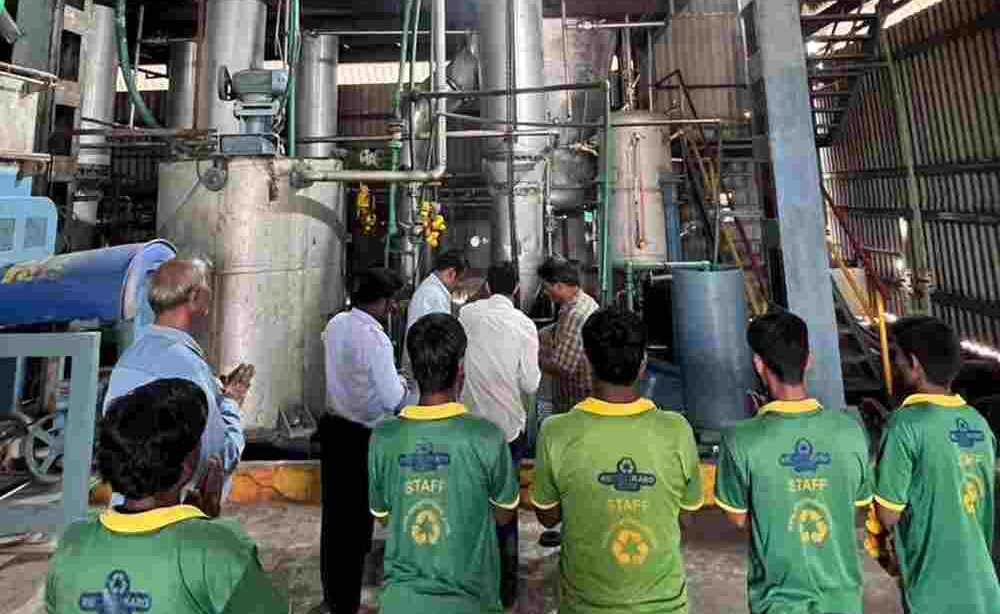

Navi Mumbai-based recycling start-up Recyclekaro has announced that it has registered itself on the Extended Producer Responsibility (EPR) portal of the central government for e-waste recycling.
Previously, Lohum Cleantech, Attero, and LICO Materials also got registered as lithium-ion battery recyclers, underscoring their commitment to sustainable e-waste management. Now Recyclekaro has joined the league.
With its current recycling capacity, Recyclekaro will assist lithium-ion battery and electronics manufacturers, producers, and importers in India in meeting their EPR targets. These targets include 4,200 metric tons for lithium-ion battery recycling and 15,000 metric tons for e-waste recycling, supporting comprehensive sustainability goals.
India, the third-largest e-waste producer globally, generates 1.71 million metric tons annually, with only about 40 percent recycled in the last financial year. To address this, the EPR portal, an initiative by the Central Pollution Control Board (CPCB), offers a transparent and accountable framework for electronic waste management in India.
Rajesh Gupta, Founder and Director of Recyclekaro, stated, “Registering on the government’s EPR portal allows us to connect directly with manufacturers, helping them fulfill their waste management responsibilities while significantly enhancing our business opportunities. This registration strengthens our industry position and supports our mission to promote sustainable and responsible recycling practices.”
Recyclekaro has established a strong presence in the Indian recycling industry, achieving 90 percent metal extraction efficiency with purity levels exceeding 99 percent from scrap batteries.
The EPR portal centralizes the tracking of e-waste from production to disposal, linking manufacturers with registered recyclers like Recyclekaro and streamlining collection and recycling processes. It also provides financial incentives through EPR credits, making recycling economically viable and supporting companies in achieving sustainability targets.
Moreover, the platform ensures regulatory compliance, improves data collection and reporting, and encourages innovation in recycling technologies, promoting a more sustainable approach to e-waste management in India.
The Battery Waste Management (BWM) Rules, 2022, issued by the Ministry of Environment, Forest and Climate Change, apply to all types of batteries. These rules require producers (manufacturers, importers) to meet collection and recycling targets to fulfill Extended Producer Responsibility (EPR) obligations. Producers, recyclers, and refurbishers must register through the CPCB’s online portal, enhancing accountability, traceability, and transparency in meeting EPR obligations.
Recyclekaro plans to double its recycling capacity by the second quarter of the current financial year 2024-25.
Reliance Industries Ltd (RIL) Chairman Mukesh Ambani has announced a massive ₹75,000 crore investment in…
Green-energy heavy-duty truck maker Blue Energy Motors has reached a remarkable milestone by surpassing 50…
India is on track to exceed its Nationally Determined Contribution (NDC) target of reducing the…
Raj Process Equipments and Systems Pvt Ltd, a Pune-based technology innovator and engineering conglomerate, is…
Europe’s renewable energy sector faces a potential slowdown, burdened by grid saturation, permitting delays, and…
Hexa Climate has announced the launch of a pioneering afforestation project in Purulia, West Bengal.…